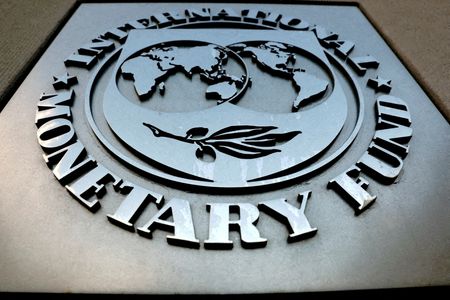By Francesco Canepa
WASHINGTON (Reuters) – Italy and France should cut spending faster than they currently plan to keep debt under control while Germany should loosen its own purse strings to revive growth, the International Monetary Fund said on Friday.
Finance ministers from all over the world have descended on Washington this week to compare notes and hear from IMF and World Bank experts on topics ranging from fiscal policy to global growth and helping poorer countries.
While the IMF’s advice is not binding for countries that do not receive its help, its latest musings on Italy, France and Germany are likely to bring back uncomfortable memories of the last decade’s debt crisis.
“Advanced European economies with relatively high debt levels should implement more significant and front-loaded fiscal consolidation than envisaged under the authorities’ current policies (for example, Belgium, France, and Italy),” the IMF said in its economic outlook for Europe.
The global lender’s European director, Alfred Kammer, told Reuters in an interview that Italy’s government should stop an “inefficient” incentive for home renovations, known locally as the Superbonus, currently due to be gradually phased out by the end of next year.
France, in turn, could reap a “substantial yield” by getting rid of energy subsidies launched after Russia’s invasion of Ukraine in 2022, Kammer added.
Germany, by contrast, had “fiscal space” to invest in digitalisation and public infrastructure and to support companies’ research and development, Kammer said. Earlier this week, the IMF cut its growth forecasts for Europe’s largest economy.
The IMF estimates that Germany could raise its debt brake, which restricts the budget deficit, to 0.35% of its gross domestic product, to 1.35% while still reducing its debt/GDP ratio.
It did not say by how much Italy or France should reduce their deficits. Italy expects a budget deficit of 4.3% of GDP this year, 3.7% next year and 3.0% in 2026, although the country’s finance minister has said much would depend on the European Union’s new budget rules.
FUNDING PRESSURES
France hiked its deficit forecast last week to 5.1% of GDP and said it would seek an extra 10 billion euros in budget cuts.
Paris has phased out many of its cost-of-living subsidies, but a tax break on electricity bills used to cap power prices has only partially been removed and will only be fully phased out in February 2025.
Kammer recommended bringing forward the belt tightening to send “a strong signal to the market” and free up resources for long-term challenges, such as an ageing population, climate change and increased military spending.
The IMF sees these medium- to long-term funding pressures rising to account for 5.5% of the GDP of Europe’s advanced economies by 2050.
Italy, which was at the epicentre of the 2011-2012 debt crisis due to its large debt, is expecting a European Commission disciplinary procedure this year due to its persistent budget deficit overshoots.
France has traditionally been seen as safer although it has lost all of its triple-A credit ratings over the past decade as its debt-to-GDP ratio rose steadily.
Germany is the only large European country that boasts a top-notch rating, but its economic model, for decades predicated on cheap fuel from Russia and close ties with China, has been thrown into question by the recent geopolitical tensions.
(Additional reporting by Leigh Thomas in Paris, Gavin Jones in Rome and Maria Martinez in Berlin; Editing by Paul Simao)





